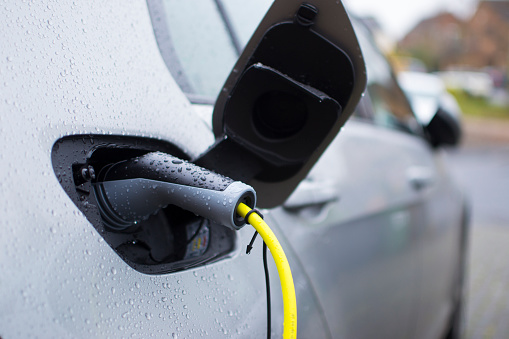Understand The Costs Associated With Electric Cars
How Cost Effective Are They?

The number of electric vehicles on Irish roads is increasing every year. The latest information from the Department of Transport for the year 2019, shows that there are 8,473 electric passenger cars in Ireland. As this figure continues to rise, more and more people are thinking about what the switch could mean and how much it would cost to purchase and run an electric car. The Irish government has declared a target of nearly one million electric cars on the road by 2030 to try and reduce the impact of global warming. If electric cars are the future, you may be wondering how much it will cost you. Read on to find out more.
How much does it cost to own an electric car?
No matter what type of car you have, there are always costs to consider. Once you’ve purchased the car itself, there’s car insurance, maintenance, road tax and fuel/charging to pay for, increasing your monthly outgoings. But how does the cost of running an electric car differ to that of a car with a combustion engine?
How much are electric cars?
Electric cars are typically more expensive than their fossil fuel counterparts because the batteries cost so much to produce. To assist with the take up of electric cars, the Sustainable Energy Authority of Ireland (SEAI) are offering grants for all fully electric and plugin hybrid electric vehicles that may help to reduce the initial outlay. The maximum grant you can currently get (if you purchase the car from an approved dealer) is €5,000 for cars which cost more than €20,000.
In spite of this, buying a brand new electric car could cost you at least €28,000 and that’s with the potential grant money subtracted from the total. The Nissan Leaf is one of the most reasonably priced electric cars starting from €27,595 (including grant discount), however they can go up in price substantially for models like the Kia e-Niro (€37,634) and the Tesla Model S (€80,990). It’s likely that as the popularity of such vehicles increases, the battery production costs will go down and therefore the price of the cars could decrease too.
When it comes to motor tax for electric vehicles, this will be slightly reduced compared to a petrol or diesel car. This is because tax is based on how much CO2 the vehicle produces - the more emissions a car gives out, the more expensive the tax. As the government is trying to encourage road users to purchase an electric vehicle, the tax will be set at €120 per year in 2021.
Another type of tax that should be paid on vehicles in Ireland is vehicle registration tax (VRT). VRT should be paid when a car is first registered. However, for those who purchase electric vehicles, SEAI can offer a further grant of up to €5,000. This will be available until the end of 2021. When purchasing a new electric car from a dealer, it’s likely that they’ll automatically take this grant into consideration and will reflect it in the purchase price.
How much does it cost to charge an electric car?
Now that you know how much you could have to fork out for the car itself, how about the cost of charging it?
Before you can think about that, you’ll need to have a charging point installed at home. While these cost around €1,099 for the charger and installation, there is a further SEAI grant that covers €600 of this fee. While there are certain requirements for the grant, it could bring the total cost of the charger down to €499.
The size of an electric car’s battery is measured in kilowatt hours (kWh). You can use this to work out how much it would cost to charge an electric car from empty to full. You can simply multiple the battery size by the cost of electricity per kWh. For example:
40 (kWh Battery size) x 9.91 cents (cost of electricity per kWh at night time) = €3.96
An entry level electric car with a battery size of 40 kWh would cost around €3.96 to charge fully at home where there is a night time rate available.
If you drive around 20,000 km per year and charge your car at home, you’ll be looking to pay around €24.40 per month or €293 per year (based on a range of 270km for every full charge).
Do electric cars depreciate faster compared to a combustion vehicle?
Electric cars tended to deprecate faster compared to petrol and diesel equivalents when they were first introduced due to limited demand and issues with batteries. However, that has all changed and electric cars tend to hold their value better. Industry experts estimate that an electric car will lose 50% of its value after three years and 48,000km on the clock. Petrol and diesel cars tend to depreciate in value by 45% - 50% within the same period.
How much does it cost to service an electric vehicle?
Service and maintenance costs are generally lower for electric vehicles as there are no oil changes, tune-ups or emissions tests to worry about. In addition, the brake pads last longer on an electric vehicle due to the use of regenerative braking to slow the vehicle. Most manufacturers offer a warranty from 5 to 8 years on the batteries.
If you are interested in getting an electric car, why not get a Quick Quote at the top of this page to get an idea on insurance costs.
